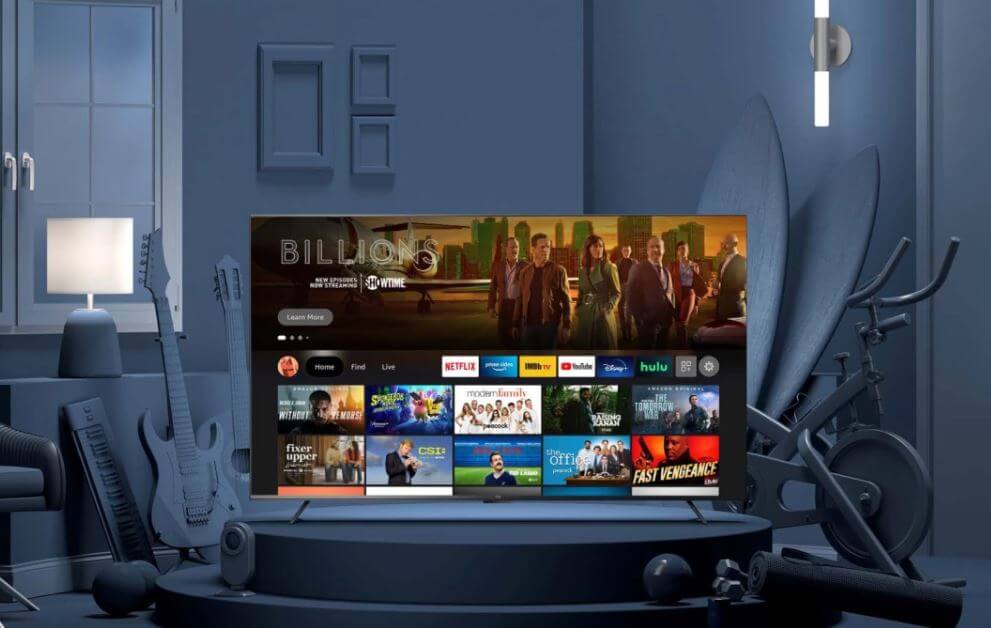Amazon yesterday revealed their new sets of TVs: the Amazon Omni and the Amazon Fire TV 4-Series. Branded and manufactured by Amazon, the big news is that the Omni TVs include far-field microphones for hands-free voice control – the same microphones you’ll find in an Alexa smart speaker.
Amazon’s hugely successful Fire sticks have benefited from Alexa integration. However, the users always had to click a button on their remote control and then speak into the controller. Whereas with Omni, users will be able to say “Alexa” followed by their command. This has been possible with the Fire TV Cube, however the Cube was a device you plugged into your TV.
With the new TVs, Amazon is now merging the big screen experience with the voice experience known to smart speakers users. Screens and Alexa is nothing new – many TV companies have already had Alexa integrations and Amazon themselves have the Echo Show devices (their range of smart speakers with screens). But with Omni, Alexa is built into the core operating system – which makes this the first voice-first TV.
Users will be able to use voice control for simple TV interaction such as changing channel, volumes up and down. But also for content discovery, for example opening specific programme requests from third party providers such as Netflix, or a recommendation of what to watch.
Thus, Alexa will become your assistant to find your next TV show, recommending content from the catalogue of content the user has subscribed to.
We’ve long thought about the second screen experience with voice. How users can be watching a sporting event and then ask questions about individuals participating, or who a particular actor is in a film. With the new Alexa integration in Amazon Omni, users will also be able to ask questions about actors on the screen using the X-ray feature which displays information on the screen.
While Omni doesn’t include a webcam, there is support for adding a USB webcam which can be plugged into the back and then used for video calls, including Zoom.
Currently there’s no information regarding Alexa Skills, but one assumes a similar setup to the Fire TV where users can invoke skills as they do with a smart speaker. However, in our experience this can often lead to conflicts when a name of a skill matches with the name of a TV show or film. In that case, Alexa tends to prioritise the TV show or film. Therefore, brands will need to take extra steps when selecting invocation names.
What are our overall thoughts?
- Voice interaction is a game changer for content discovery, a great way to get around decision paralysis of what to watch
- Being able to voice search across multiple content providers will be key – content providers will need to provide Amazon with a way of accessing their catalogue. Tagging of content will be key.
- More voice interaction will mean those producing content will need to think about how voice-friendly their content is – great example here.
- Amazon have jumped ahead of their direct competitors (Google & Apple) by launching a truly voice-first TV for the mass market – how are these competitors likely to respond?
- This presents an increased opportunity for brands to build Alexa skills where visuals are key to their brand or experience, e.g. shopping, real estate and holiday booking, all using APL
The higher-end Amazon Fire TV Omni Series will be sold in five sizes: 43 inches ($409.99), 50 inches ($509.99), 55 inches ($559.99), 65 inches ($829.99) and 75 inches ($1,099.99). All support 4K video but no news on a release date or prices in the UK.
At the same time Amazon is also launching a more affordable Amazon fire TV 4-Series. Which are smaller screen, with a larger bevel around the edge and no webcam. But more importantly, Alexa can only be accessed via the remote.
